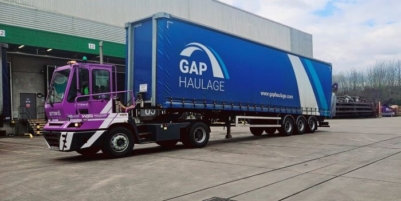-
Nutrivend selects Forterro’s Orderwise to support online expansion and streamline operations - April 11, 2025
-
ARROWXL LAUNCHES AMBITIOUS ZERO WASTE ROADMAP - April 8, 2025
-
THE BCMPA’S NEW CAMPAIGN DRIVES OUTSOURCING SUCCESS IN Q1 - April 7, 2025
-
BLACKOUT TECHNOLOGIES TARGETS TELEMATICS-INTEGRATED MOBILE DEVICE BLOCKING TO COMBAT SMARTPHONE DISTRACTION - April 1, 2025
-
Sparck Technologies awarded Royal designation - March 27, 2025
-
OpenADR Alliance announces first OpenADR 3.0 certified products with EVoke Systems, E.ON Energy and Universal Devices - March 25, 2025
-
Growing fulfilment and contract packer appoints new Managing Director - March 25, 2025
-
When is it time to invest in a WMS? Understanding the key trigger points - March 25, 2025
-
eCapital helps Vantage Recruitment on its journey to financial success - March 24, 2025
-
Hugo Beck Celebrates 70 Years of Packaging Innovation with Open House Events - March 20, 2025
Romane Reeves, Associate Tax Director, BDO Leeds
The Government’s levelling up white paper was released earlier this year with a positive focus on regional investment in R&D. With a pledge to leverage at least twice as much public sector investment, this could be the key to stimulating productivity growth across the UK and also accelerate R&D efforts in sectors ripe for innovation.
Rishi Sunak clearly has the bit between his teeth when it comes to the current R&D tax regime and balancing the incentives given in one hand with the level of R&D carried out in the other. This is very much a ‘watch this space’, in terms of potential reforms, but one thing that was announced was the expansion of the qualifying expenditure categories to include all cloud computing costs associated with R&D, as well as pure mathematics to reflect the increasing amount of R&D being carried out in this field. This will mean that areas such as Artificial Intelligence (AI) and Robotics will now be eligible for relief.
Given the pace of growth in the supply chain & logistics sector, investment in R&D has been key to driving automation and digitalisation in warehousing, as well as mitigating supply chain risk through tech-driven visibility of real-time data. Yet by nature, many logistics businesses are international in their operations so may need to rethink their tax and innovation strategy as the Government has confirmed new R&D tax relief rules. The Chancellor has previously announced plans to eliminate reliefs for overseas R&D, to meet the Government’s objectives to drive more innovation in the UK and keep a watchful eye on genuine UK R&D. While the Spring Statement acknowledged that there are certain instances where overseas research and development activity is necessary, there is a clear direction of travel of onshoring R&D.
BDO’s bi-monthly Rethinking the Economy survey of 500 leaders of medium-sized businesses reveals 88% of supply chain businesses are set to be impacted by this R&D tax reform, which will come into effect from 1 April 2023.
The announcement, which aims to target abuse, improve compliance and drive UK innovation could have substantial implications on business’ cashflow and if not considered holistically and proactively could hamper the level of R&D carried out by companies.
The Government’s motivation for overhauling the R&D tax relief rules is to drive innovation in the UK and better govern genuine UK R&D. While at a policy level this makes sense, the impact on businesses could be significant unless they prepare in advance for the impending changes.
The 88% of transport businesses with overseas R&D will need to consider modelling the impact of these tax changes on their R&D claim. This will allow them to truly understand the net cost of innovation for future R&D now the detail has been announced. Of course, the greatest cost to UK businesses could be that companies invest less in R&D overall as they’re not able to transfer the current level of investment into the UK
ONS figures estimate that approximately £25.9 billion of the £47.5 billion of R&D investment in 2019 was in the UK with the remainder spent overseas.
The transport sector is well placed to drive the new standard for R&D investment in the UK. With so many entrepreneur-led businesses experiencing rapid growth, those who innovate will continue to gain a competitive advantage and ensure a loyal customer base in the long-term. Technology has the power to transform supply chain businesses and many companies are carrying-out R&D without realising as they look to overcome supply chain challenges.
To discuss your business’ R&D strategy, please contact Romane Reeves, Associate Tax Director at BDO Leeds.
































